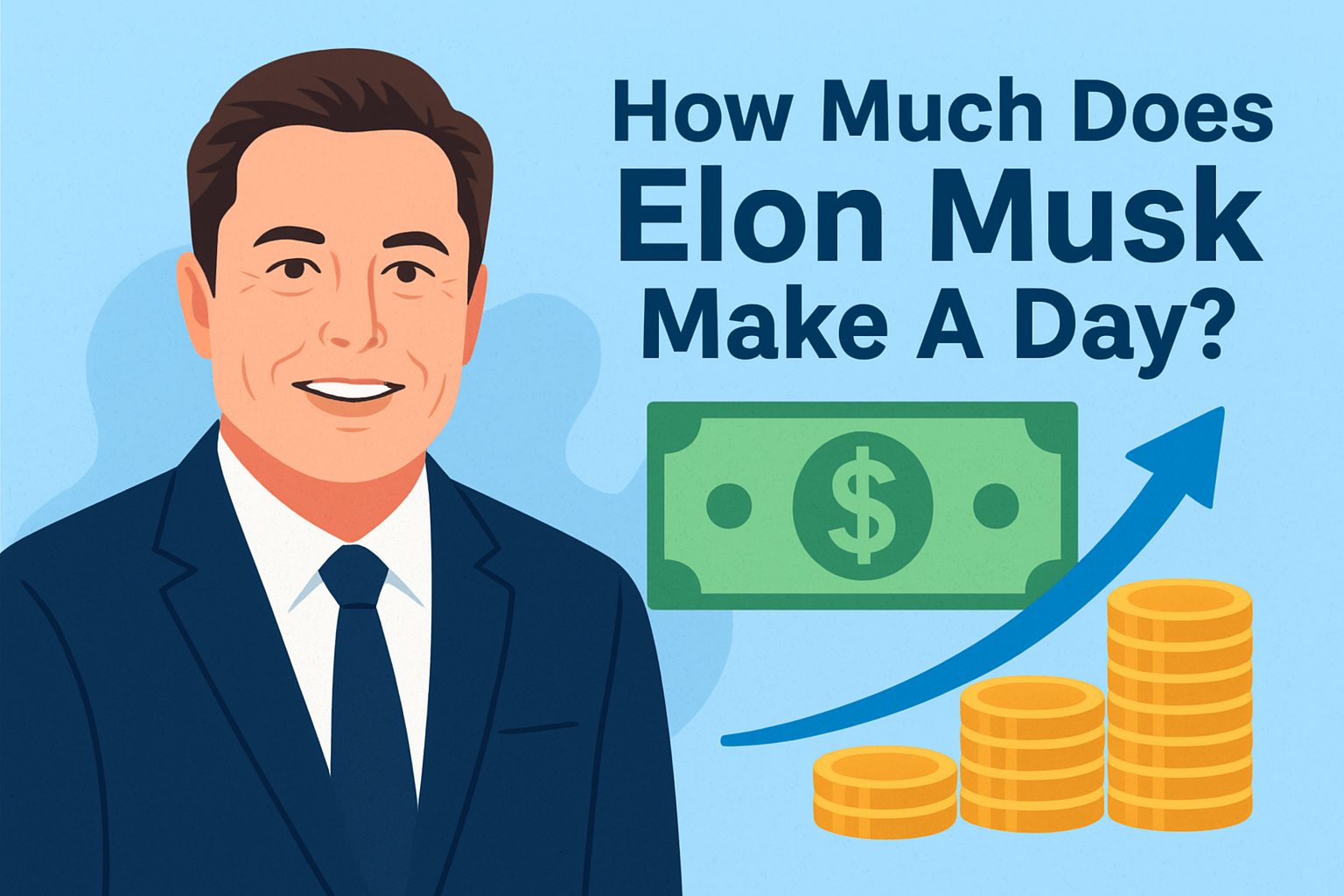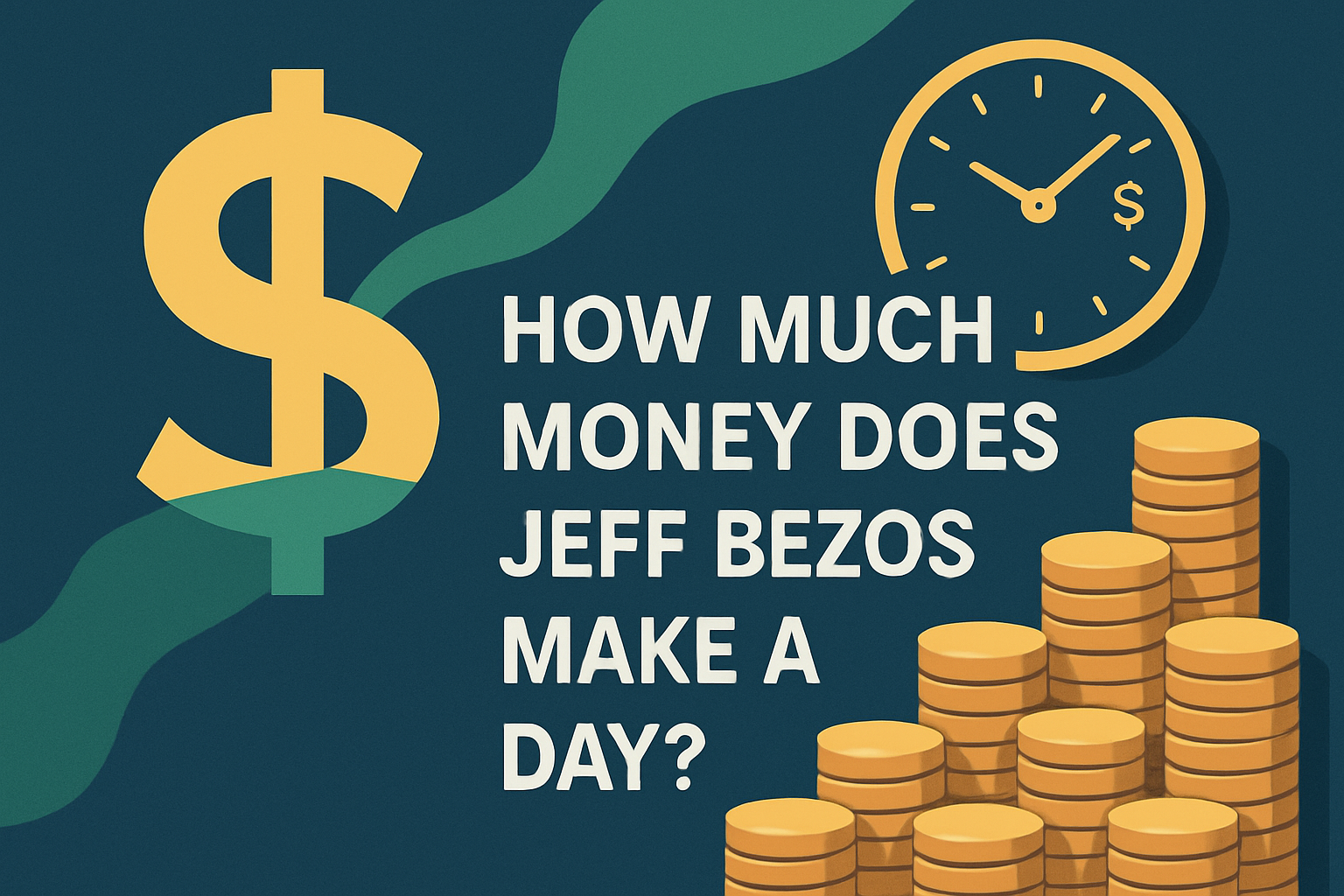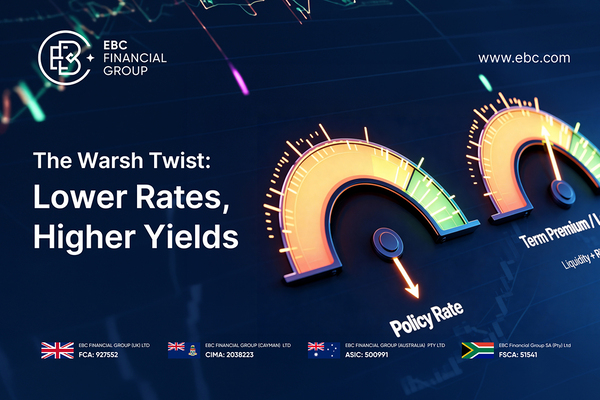If you spread one of his most considerable wealth jumps evenly across the calendar, Elon Musk made about $ 836 million per day in 2025.
That is roughly 34.8 million dollars per hour, around 580,000 dollars per minute, and close to 9,670 dollars every single second in net-worth gains.
Those numbers are so large that they almost feel unreal. But they only make sense if you understand one simple idea: this is not a salary and not money created out of nowhere.
It is the average rate at which his total wealth grew in that year, driven mainly by the stock market.
To really answer “how much does Elon Musk make a day,” we need to walk through how his wealth changed, what we are dividing, and why you can’t just take his total net worth and slice it by 365.
What “Make A Day” Really Means For Someone like Musk

When people ask how much Elon Musk makes per day or per second, they often imagine a giant paycheck that lands in his bank account every 24 hours. That is not how his money works.
Two key points:
Most of his wealth is stock, not cash.
Public rich lists show that his fortune is almost entirely tied to his stakes in Tesla, SpaceX, and newer ventures in AI and technology.
We must look at the change in net worth, not the total.
His net worth is the value of everything he owns. It goes up and down as share prices move.
When we ask how much he “makes a day,” the only honest way is to look at how much his net worth changed over one year, then divide that change by the number of days.
So “Elon Musk makes 836 million dollars a day” really means that in 2025, if you take how much richer he was at the end of the year compared with the start, then spread that gain over 365 days, it comes to about 836 million dollars per day on average.
But it does not mean he will always make that much every day, or that the same pace will continue forever.
How much did Elon Musk’s net worth grow in 2025?
Different billionaire trackers give slightly different numbers for 2025, but they tell the same story: his wealth surged.
Several public estimates show that:
At the start of 2025, Musk’s net worth was around 421 billion dollars.
By the end of 2025, it was reported to be around 620-730 billion dollars, depending on the source and exact date used.
One widely cited figure states that his net worth stood at 726 billion dollars at year-end, up about 305 billionfrom the start of 2025.
Other analyses put the gain closer to 190 billion or even 305 billion, based on different data feeds and valuation points.
For a clear and consistent calculation, this is the middle-of-the-range figure, where his net-worth gain in 2025 was 305 billion dollars.
That is the amount we treat as his “income” for the year in the sense of wealth increase, not salary.
Breaking Down 213 billion dollars into per-day, per-hour and per - second numbers
Now we do the math carefully and keep it consistent.
| Time Period |
Calculation |
Amount |
| Per Day |
305,000,000,000 ÷ 365 |
$836,000,000 / day |
| Per Hour |
835,616,438 ÷ 24 |
$34,800,000 / hour |
| Per Minute |
835,616,438 ÷ 1,440 |
$580,000 / minute |
| Per Second |
835,616,438 ÷ 86,400 |
$9,670 / second |
So if you ask “how much does Elon Musk make a day, per hour, or per second,” a realistic, data-based answer using 2025 is:
About 836 million dollars per day, 34.8 million per hour, 580,000 per minute, and 9,670 dollars per second in average net-worth gains.
Using the exact daily figure, we can estimate how much he “made” during normal daily activities, if 2025’s pace were smoothed across the year.
Let’s assume that he has:
6 hours of sleep per day
1 hour of eating per day
A 7-day week
A 30-day month
Calculations
While sleeping (6 hours)
6 hours is one-third of a day.
836 million × 6 ÷ 24 ≈ 209 million dollars per night.
While eating (1 hour)
1 hour is 1/24 of a day.
836 million ÷ 24 ≈ 34.8 million dollars during an hour of meals.
Per week
836 million × 7 ≈ 5.9 billion dollars per week.
Per 30-day month
836 million × 30 ≈ 25.1 billion dollars per month.
Summary table
| Time Period |
Approx Amount (USD) |
How It Is Derived (2025 gain ≈ $305 bn) |
| Per second |
≈ $9,670
|
305 bn ÷ 365 ÷ 86,400 |
| Per minute |
≈ $580,000
|
Daily figure ÷ 1,440 |
| Per hour |
≈ $34.8 million
|
Daily figure ÷ 24 |
| Per day |
≈ $836 million
|
305 bn ÷ 365 |
| While sleeping (6 h) |
≈ $209 million
|
Daily × 6 ÷ 24 |
| While eating (1 h) |
≈ $34.8 million
|
Daily × 1 ÷ 24 |
| Per week (7 days) |
≈ $5.9 billion
|
Daily × 7 |
| Per 30-day month |
≈ $25.1 billion
|
Daily × 30 |
These figures are averages for one powerful year. They are not guaranteed, and they can reverse sharply when markets move against him.
Why you cannot divide his total net worth by a year
This is where many people get confused.
If Elon Musk is worth, for example, 700 to 800 billion dollars, you might feel tempted to divide that by 365 days and say he “makes” more than a billion dollars per day.
That logic is wrong, because:
He did not build that fortune in one year. It has taken decades of work, risk, and compounding.
In some years, his net worth has fallen by more than $180 billion, setting a world record for the largest loss of personal fortune when Tesla’s share price collapsed.
In early 2026, his wealth also dropped sharply from the late-January peak as markets and politics turned more volatile.
The correct method is always:
Pick a time period (for example, calendar year 2025).
Measure net worth at the start and the end.
Subtract the start from the end to get the change.
Divide that change by days, hours, minutes, or seconds to get an average.
You should never divide his entire net worth by the days in a year. That would pretend all his money arrived in that year, which is clearly not true.
How Is Elon Musk Actually Paid?
Another common misunderstanding is about his salary.
Public filings and biographies show that Musk does not take a normal cash salary from Tesla. Instead:
He agreed to a compensation plan where he receives no regular salary, no standard cash bonus, and no time-based stock.
He is rewarded with large stock option packages only if Tesla hits very ambitious targets in market value, revenue, and other milestones.
Most of his fortune is therefore:
Highly concentrated in a few companies
Extremely sensitive to share-price moves
Capable of rising or falling by tens of billions in a short time
The “per day” numbers are the reflection of that volatility, not of a giant paycheck.
What This Means For Ordinary Investors
The scale of these figures can feel almost alien, but the basic lessons are familiar:
Equity, not salary, drives extreme wealth. Musk’s net worth comes from owning pieces of high-growth businesses, not from a monthly paycheck.
Volatility is the price of huge upside. The same leverage that gave him a 305-billion-dollar gain in 2025 also allowed a record 182-billion-dollar loss when markets turned against him earlier.
Averages hide big swings. Saying “836 million dollars per day” sounds smooth, but in reality, some days added tens of billions to his wealth, while others erased billions just as fast.
For most traders and investors, the practical takeaway is not to chase extreme risk, but to understand how powerful long-term ownership of productive assets can be, and how important it is to manage drawdowns.
Frequently Asked Questions (FAQ)
1. Does Elon Musk really make 836 million dollars every single day?
No. That number is just an average of his 2025 net worth gains divided by 365 days. His wealth fluctuates with stock prices; some days it rises by billions, other days it can fall.
2. Is Elon Musk’s wealth actual cash or mostly on paper?
No. That number is just an average of his 2025 net worth gains divided by 365 days. His wealth fluctuates with stock prices; some days it rises by billions, other days it can fall.
3. Why do different sources give different numbers for how much he made in 2024?
Different sources use varying dates, market prices, and private-company valuations, so estimates range from about $190 billion to $305 billion.
4. If Elon Musk is worth almost 500 billion dollars, why can’t we divide that by a year to get his daily income?
It’s highly unlikely Musk can keep adding hundreds of billions to his net worth every year. His 2025 gains came during a period of soaring company valuations and strong investor optimism, and past declines have wiped out over $180 billion on paper, showing how volatile such wealth growth can be.
5. Does Elon Musk have a normal salary from Tesla or his other companies?
Elon Musk does not receive a typical salary or bonus. His pay comes almost entirely from performance-based stock options that only have value if very ambitious targets are met. If those targets aren’t reached, the options can be worth far less than expected.
6. Could Elon Musk keep making this much money every day for many years?
It’s highly unlikely Musk can keep adding hundreds of billions to his net worth every year. His 2025 gains came during a period of soaring company valuations and strong investor optimism, and past declines have wiped out over $180 billion on paper, showing how volatile such wealth growth can be.
Conclusion
So, how much money does Elon Musk make a day?
Based on one of his strongest recent years, a reasonable estimate is that his net worth grew by about 305 billion dollars in 2025, which means around 836 million dollars per day, 34.8 million per hour, 580,000 per minute, and roughly 9,670 dollars per second in average wealth gains.
These figures are impressive, but they are not a fixed salary or a promise of the future. They are simply a snapshot of how quickly his fortune grew in one exceptional year, driven almost entirely by equity markets that can rise and fall just as dramatically.
Disclaimer: This material is for general information purposes only and is not intended as (and should not be considered to be) financial, investment or other advice on which reliance should be placed. No opinion given in the material constitutes a recommendation by EBC or the author that any particular investment, security, transaction or investment strategy is suitable for any specific person.


























